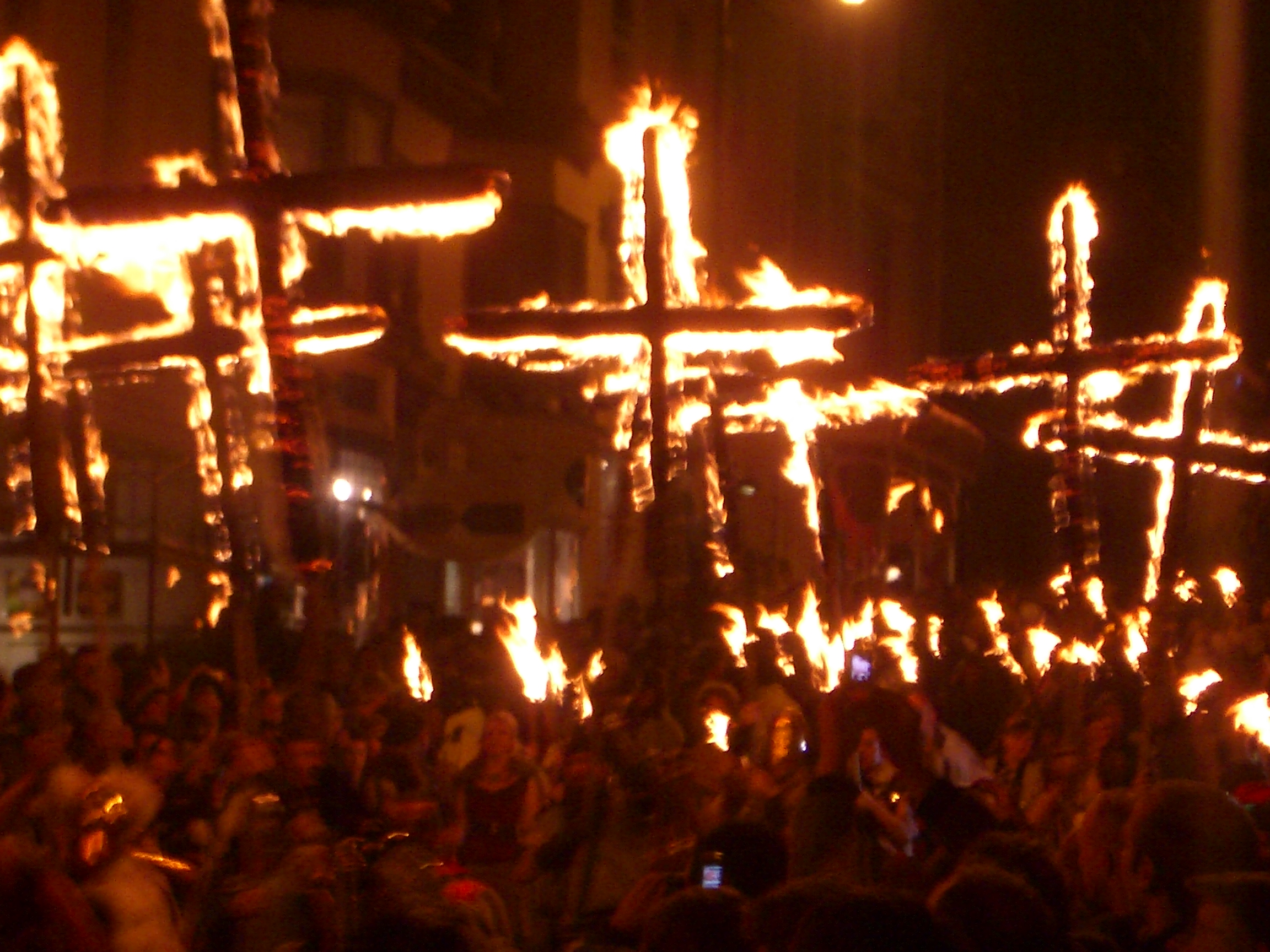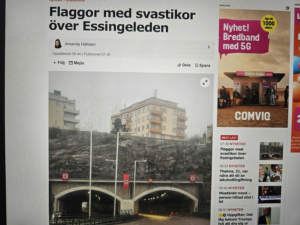The Christian Right, sometimes polemically referred to as “Clerical Fascism,” is a faction of the political right that derives and strives for an ultraconservative model of society based on its religious beliefs, primarily through a scriptural interpretation of biblical texts. The Christian Right generally rejects the secular state. Some of its proponents advocate for a theocracy, a Christian state governed by God, or an authoritarian state where Christianity holds a privileged role. This movement often draws inspiration from periods when the Christian Right held power in the past, advocating for a binding framework for society and family.
On the right-wing Catholic side, the Catholic dictatorship “Estado Novo” (1940-1974) in Portugal under António de Oliveira Salazar and the Catholic corporative state in Austria (1934-1938) founded by Engelbert Dollfuß serve as historical models. The faction of the Christian Right that looks to these specific historical models can be classified as anti-democratic. In the present, people often refer positively to authoritarian democracies such as the PiS government in Poland, the FIDESZ government in Hungary, and to some extent, the autocratic Putin regime in Russia. The traditionalist character of these states, as well as their laws against abortion and LGBTIQ+ rights, are considered exemplary by some.
Part of the Christian Right openly rejects modernity and the Enlightenment. A negative evaluation of the period after the French Revolution is particularly widespread among the Catholic Christian Right. However, this anti-modernism does not usually extend to technological modernity. Only certain Christian-inspired sects also reject modern technology. The Christian Right can be subdivided by denomination, with distinct Catholic, Protestant, and Orthodox Christian Right factions.
On the Catholic side, the Christian Right is recruited from Catholic traditionalists who are largely united in their rejection of some decisions made during the Second Vatican Council (1962-1965), an internal Catholic reform. On the Protestant side, the Christian Right primarily comes from the ranks of evangelicals, a theologically conservative group that describes itself as “confessionalist” and “faithful to the Bible” because of their adherence to a form of biblical fundamentalism. The Orthodox Christian Right in Europe exists in diaspora communities and in countries such as Bosnia-Herzegovina, Bulgaria, Montenegro, Romania, Serbia, Russia, Ukraine, and Cyprus with Orthodox national churches. The Orthodox clergy in these countries also mobilize particularly against Pride parades. There is a connection between parts of the Christian Orthodox clergy and nationalist movements and groups. For example, at present, the majority of the Russian Orthodox Church supports the Putin regime’s course of war. The Patriarch of Moscow is attempting to reinterpret this war as a worldview conflict between the Christian Orthodox and traditionalist East against the decadent West. The Orthodox Christian Right sees Moscow as a “Third Rome” from which the fight against liberalism and materialism is being waged.
However, not all evangelical or Catholic traditionalist Christians can be simply categorized as part of the Christian Right. Some merely hold conservative positions and are prepared to accept more liberal conditions in society and the church. Within evangelicalism, there is a fundamentalist minority that advocates, for example, young Earth creationism — the belief that the Earth is only 6,000 years old. The Catholic Christian Right, in particular, sees itself as part of a long tradition, often referencing the Crusades or the Reconquista, the Christian reconquest of the Iberian Peninsula, in a positive light.
With their social concepts and religious beliefs, the Christian Right in the West is hostile to the theologically liberal mainstream within their own denominations. In the East, on the other hand, the Christian Right tends to be more central within society and the church in some countries. In Western Protestantism, many theologically conservative individuals have split off and organized themselves into their own free churches. In Catholicism, attitudes toward the church often depend on the orientation of the incumbent pope or the bishop in charge.
Dance with the Devil: The Alliances of the Christian Right and the Secular Far-Right in Europe
The Christian Right is also seeking allies outside the Christian milieu. Consequently, parts of the Christian Right form alliances with the secular Far-Right based on shared enemy images. Both groups hold similarly pessimistic views on the liberalization and pluralization of society, which they evaluate negatively. However, while the Christian Right tends to lament “de-Christianization,” the secular Far-Right focuses on changing demographics, often referred to as “The Great Replacement.” Both share the belief in a fundamental decline in values and morals in society, described as a “moral panic,” and view themselves as engaged in a culture war with the political Left and “feminism,” both inside and outside the church. For the Christian Right, this perspective is sometimes combined with religious expectations of the end times. Changes in society that are viewed negatively are interpreted as signs of the anticipated Armageddon, which is believed to involve the return of the “Messiah,” the rapture of believing ‘true’ Christians to heaven, and an apocalyptic battle with the Anti-Christ.
Other political themes of the Christian Right include conservative sexual morals, rejection of homosexuality, and opposition to abortion. A binary and heterosexual gender system is derived from the traditional understanding of the Bible. Concepts that seem to contradict this “divine order” are labeled as “sin” and are rejected or even fought against. This conservative family model of the Christian Right is problematic on several levels. For instance, the rejection of modern women’s emancipation and the denial of recognition and equal treatment of LGBTIQ+ persons lead to homophobia and transphobia. In the evangelical milieu, there are also widespread publications that justify the mistreatment of wives and children by citing biblical passages. Such attitudes are based on biblical texts but are often accompanied by a scientification of one’s own positions to appeal to a secular audience. At the same time, there appears to be a susceptibility to conspiracy narratives, which are sometimes framed in terms of the influence of “demonic” forces in the world, often charged with religious beliefs.
Not all Far-Right groups with a religious reference are part of the Christian Right. Even within the Secular Far-Right, there is an increasing cultural reference to conservative Christianity, often invoking the idea of a “Christian West” or “Christian Occident.” This is typically coupled with a rejection of Islam, which is constructed as an antagonist.
In contrast to the Secular Far-Right, ethno-nationalism is less common among the Christian Right. More important to the Christian Right is affiliation with Christianity, adherence to a specific denomination, and commitment to a conservative theological interpretation. Christianity, as a missionary religion, has a certain universalistic character, allowing people of any origin to join it, which distinguishes it from ethnic nationalism or ethno-religious ideas.
Nevertheless, there are attempts at national-religious syntheses, where ethno-nationalism is combined with a particular religion or denomination. Examples of this can be observed in Greece, Croatia, Poland, and Serbia. Such attempts are significantly hindered by denominational diversity and a theologically liberal mainstream.
Alliances between the Christian Right and the Secular Far-Right do not encompass all parts of the Far-Right. Some segments of the Far-Right reject alliances with the Christian Right, often adhering to neo-paganism. These groups typically maintain an anti-Semitic and anti-Christian stance, viewing Christianity as “Judeo-Christianity” and rejecting it as an “alien desert religion.”
International networks of the Christian Right
Organizationally, the Christian Right operates through a network of various organizations and projects. Some of these organizations are recognized groups within the major churches (e.g., religious orders), while others exist outside of them.
On the Catholic side, the Society of St. Pius X (SSPX) or Pius Fraternity is an example of a group associated with the Christian Right. It is not only theologically Catholic-conservative but also exhibits a distinctly right-wing stance through its publications and public appearances. For instance, the Pius Fraternity is responsible for annual demonstrations against abortion and promotes conspiracy narratives targeting the Freemasons.
The Christian Right is also frequently organized into international networks. One example is the Catholic-dominated “Agenda Europe” network. Through such international connections, many influences from abroad reach the Christian Right in various countries, particularly from right-wing Protestantism in the United States, where the Christian Right is more prominent.
In addition, direct cash flows from abroad, including from the USA and, prior to February 2022, from Russia, can be identified.
The relationship with other religions and denominations is marked by contradictions. On one hand, one’s own religion and denomination are seen as the only valid path to salvation; on the other hand, in sociopolitical issues, alliances are sometimes sought with other religious right-wing groups. Within Christianity, this alliance can be viewed as a form of “other ecumenism” practiced by the hardliners of faith.
An example of a Christian organization operating across Europe is the CitizenGo foundation. Founded in 2013 and based in Madrid, Spain, CitizenGo is directed by Ignacio Arsuaga. The foundation has reportedly received 100,000 Euro from the “Saint Basil the Great Foundation,” established by Russian oligarch Konstantin Malofeev. Between 2009 and 2018, CitizenGo and its Spanish predecessor organization, Hazte Oír, together invested nearly 33 million dollars into their campaign efforts. In Germany, for instance, CitizenGo supported the organization “Demo für alle,” which was strongly opposed to gay marriage.
Strength of the Christian Right
The influence of the Christian Right in Europe varies greatly. In Western, Central, and Northern Europe, it is more selective than widespread and generally has a negligible presence as a voter group.
However, over the past few years, the Christian Right has developed stronger campaigning capabilities and has recorded successes in street mobilization. They have organized demonstrations against issues such as gay marriage, “genderism,” alleged “early sexualization,” and reproductive rights for women. The participation figures for anti-abortion marches, which are primarily organized by the Christian Right, highlight their mobilization power:
- In Berlin (Germany), 3,150 people participated in the “March for Life” on September 18, 2022.
- In Bratislava (Slovakia), 50,000 people participated in the 3rd pro-life march on September 22, 2012.
- In Madrid (Spain), 23,000 people participated in the March for Life on March 12, 2023.
- In Paris (France), 6,300 people participated in the “Marche pour la Vie” on January 16, 2023.
- In Warsaw (Poland), 10,000 people participated in the “National March for Life and Family” on September 18, 2022.
- In Zagreb (Croatia), 15,000 people participated in the “March for Life” on May 29, 2021.
These figures illustrate that the Christian Right has varying mobilization potential across different countries. In some nations, the Christian Right is relatively weak and acts as a junior partner to the Secular Far Right, while in other countries, it is stronger and, in some cases, serves as the leading force.
Literature
Claire Provost: The American dark money behind Europe’s far right, 11 July 2019, https://www.opendemocracy.net/en/5050/the-american-dark-money-behind-europes-far-right/
Special Report – Far right in Ireland: ‘Dark money’ and the price of democracy
Niamh Kirk is a researcher of news media and networks at Dublin City University
https://www.irishexaminer.com/lifestyle/arid-30929727.html
TIP OF THE ICEBERG Religious Extremist Funders against Human Rights for Sexuality and Reproductive Health in Europe 2009 – 2018, June 2021, https://www.epfweb.org/sites/default/files/2021-06/Tip%20of%20the%20Iceberg%20June%202021%20Final.pdf
Restoring The Natural Order: The Religious Extremists Vision to Mobilize European Societies Against Human Rights on Sexuality and Reproduction, April 2018, https://www.epfweb.org/node/175








